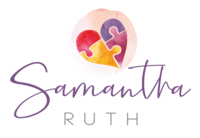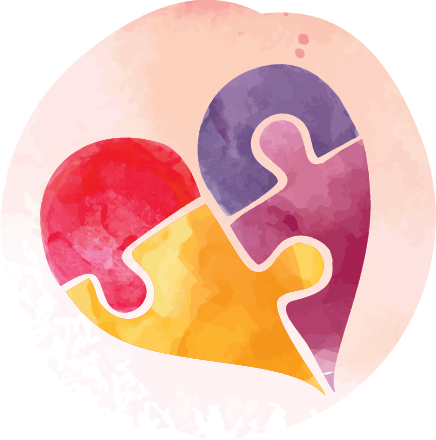Press











ABOUT Sam
SERVICES
Team Ruthless
EVENTS
GRIEFHAB™
PODCAST
RETREATS
shop
HEALING TOGETHER THROUGH THE HOLIDAYS - MAIN EVENT
HEALING TOGETHER - FOR A CAUSE: VIRTUALLY
HEALING TOGETHER - FOR A CAUSE: PILATES IN THE PARK - MICHIGAN
HEALING TOGETHER - FOR A CAUSE: VISIBLE - COLORADO
September 6-7
Jimtember Virtual Jubilee
blog
December 2nd - 8th / Metro Detroit AND VIRTUALLY
August 27th & 28th
August 30-31st
rUTHLESS IN THE ROCKIES
TEAM RUTHLESS
THE CONFIDENCE CONFERENCE
mOBILE rECOVERY dAY
Next event: September 10-23rd, Colorado
October 5-6th -
Virtual Event
September 30th, Castle Rock, Colorado
7 Groups Every week Plus Every Holiday
HEALING TOGETHER - FOR A CAUSE: Ride & ROAR - DALLAS
October 11 -12th
Stay Tuned!
FACES OF GRIEF
JOIN US
Bereaved Parents Month: How Can We Provide Better Support for Bereaved Parents and for All People Grieving?
July 10, 2023
July is Bereaved Parents Month–and my guess is that you don’t even know. Because there’s little to no support available for grieving parents. There’s little support available for people grieving, period.
And the support that is available doesn’t meet people’s needs according to their own reports, and it’s not provided for them. Rather, it’s their responsibility to find.
So let’s talk about the lack of support for people grieving and how we can work to fill the gaps.
When a person loses a loved one, they’re often left on their own, with no support. And if they do have a need, they usually have to seek out help themselves.
But when you’re grieving, even the smallest tasks feel impossible. If something requires extra effort, it probably won’t get done at all. That’s not a failure on the part of the grieving person; it’s simply the reality of grief.
Yet we leave the grieving, people who have experienced the most terrible losses imaginable, to figure it all out on their own. In my own grief journey, I was offered no support options when I lost my husband. Not even a pamphlet!
And there’s no timeline or expiration date for grieving. Researchers have found that even almost two decades after the loss of a child, bereaved parents experience higher rates of depression and other health issues. Losing a child takes a toll, not only on mental and physical health but on every area of life. Significant grief, whether it’s the loss of a child, spouse, or parent, can affect a person’s job, relationships, and general state of living. Grieving individuals need support, but they’re almost always doing it alone.
Where the Medical Community Falls Short
It often seems like the professionals who already work with grieving families have no interest in providing more support options. These professionals typically don’t make recommendations for therapy, let alone more nuanced support services. I have approached hospitals and funeral homes to offer Griefhab as a support option for the bereaved, but each has turned me down.
Not once. Multiple times. Multiple locations. Multiple situations.
In contrast, veterinary offices immediately connect their grieving clients with The Rainbow Bridge support community. And they’re actively seeking ways to do more for their clients. When I have spoken to veterinarians about Griefhab for Pets, they’re thrilled about the idea and ask for my resources immediately.
Why are we accepting this bare-minimum reality for grief support? Why do veterinarians feel a greater responsibility to grieving pet parents than medical professionals feel toward grieving parents, children, and spouses?
It’s time to rethink how we care for grieving individuals.
How Can Medical Professionals Provide Support for Bereaved Individuals?
Caring for grieving individuals starts with compassion and empathy. The best thing that medical professionals can do to support people grieving is to approach care with patience, and provide a judgment-free presence.
But there’s more that can be done. The medical community should be actively seeking new avenues of support for the grieving. What could that support look like?
Maybe hospitals and funeral homes can create their own internal database of local service providers they trust who are willing to offer services to grieving individuals. Therapists, house cleaners, meal delivery services, and task-based services could all be valuable to families during grief.
Hospitals should begin to provide on-site grief counseling in the moment. Maybe that counseling could also include creating a plan for the future and providing resources for the family.
Whatever it looks like, we need to work toward better solutions. Until then, each of us as individuals can offer support to those who are grieving within our own communities.
How Can We Support People Grieving in Our Community?
So what can you do as an individual to help people grieving?
Decisions & Planning
From the moment of loss, individuals are faced with a mountain of new tasks – and none of them are easy. They need support as they make decisions and arrangements.
They will need to decide which funeral home to use, make arrangements for the service and burial, and notify loved ones. If you want to provide support during this process, you may be able to help by:
Connecting them with Griefhab! Griefhab does all of this and more for people beginning BEFORE a loss even happens. Let me take as much stress off of your plate as possible, so you can focus on what matters most: healing, and being there for those who are healing.
You can also help people grieving by assisting with these tasks, by helping with errands, by making sure there are meals in the home, by keeping them company.
So often people want to help, and don’t know how. Unintentionally, you can add stress by asking open ended questions such as “Do you need anything?”
Here are some suggestions that help eliminate the stress of thinking for people who are grieving.
Food
People aren’t thinking about meals. But missing meals will only make grieving harder. Offer to pick up takeout. Coordinate a schedule within your community to bring hot meals to the family. You can even fill their freezer with frozen meals to be reheated as needed! And ask if they’d like meals dropped off or if they’re in the mood for company. Remember – choices, not open ended questions!
Rides
Grief creates distraction, and distracted drivers cause accidents. Offer to provide rides so that people grieving don’t have to do it on their own. If they also have children, they may need help driving kids to school, appointments, or extracurriculars.
Errands
Sometimes running errands is just too much for those who are grieving. Let them know when you have free time, and ask what their regular errands are each week. Offer to pay bills, shop for groceries, or even drop off paperwork related to their loss with the appropriate agency. Some errands may not even require a drive. If there is a question they need answered, you can help by making calls to get it sorted out!
Household Chores
Household upkeep often gets neglected when a person is grieving. When you’re visiting, check to see if there are chores that need to be done – and do them! Wash dishes, run a few loads of laundry, or clean up around the house. If you think it may be needed, bring a couple of friends along to help! This would also be a good time to bring or make dinner.
Company
Sometimes people just want to be alone in their grief. But other times, they need a friend. Keep checking in, even if it doesn’t seem like you’re wanted. Eventually they will want your company, and they’ll know that they can call on you.
Final Thoughts
Did you know that my Griefhab program offers ALL of the support listed above? My goal is to take the extra things off of your plate so that you can focus on healing. You can learn more about Griefhab here.
If you need professional support, you can email me, text, or book a call. I am always here to help!
Seeking community? Join the Griefhab Community for support, resources, and more!
Leave a Reply Cancel reply
120 E. Front St. Loft 2 Traverse City MI 49684 &
77 Monroe Center St Ste 600 Grand Rapids MI 49503
phone : +1 (231)707-0707


Donate TO GRIEFHAB™
Donate today to help make our events and services free for everyone.
You can also donate directly to support a specific client in need.
four
three
info & Investment
two
THE FOUNDER
one
fIVE
GRAB A COPY OF MY
BOOKS & MERCHANDISE
four
three
info & Investment
two
THE FOUNDER
one


fIVE
GRAB A COPY OF MY
BOOKS & MERCHANDISE










HEALING TOGETHER EVENT
EVENTS
four
three
info & Investment
two
THE FOUNDER
one
fIVE
GRAB A COPY OF MY
BOOKS & MERCHANDISE
four
three
info & Investment
two
THE FOUNDER
one





fIVE
GRAB A COPY OF MY
BOOKS & MERCHANDISE










FACEBOOK FAMILY
GRIEFHAB™ SERVICES
FACES OF GRIEF
Our Press Features
THE BE RUTHLESS SHOW
two
three
Recent Articles
one





Coming in September! Stay Tuned.
December 2nd -8th / Metro Detroit AND VIRTUALLY
August 25th
August 30-31st
October 11 -12th
Stay Tuned!










four
three
info & Investment
two
THE FOUNDER
one





fIVE
GRAB A COPY OF MY
BOOKS & MERCHANDISE
four
three
info & Investment
two
THE FOUNDER
one





fIVE
GRAB A COPY OF MY
BOOKS & MERCHANDISE









